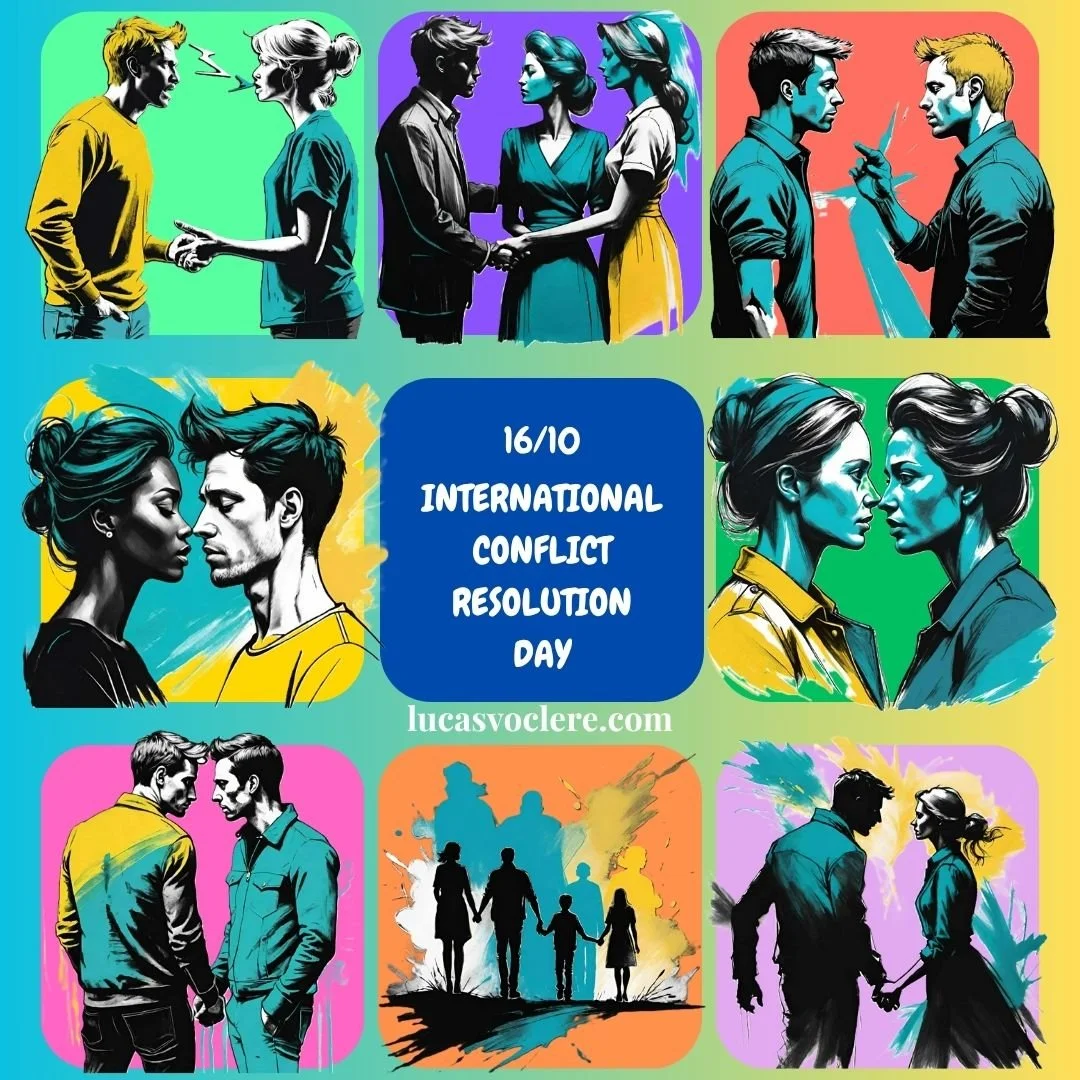INTERNATIONAL CONFLICT RESOLUTION DAY
16/10
INTERNATIONAL CONFLICT RESOLUTION DAY
The Battle of Realities
Today is International Conflict Resolution Day.
As a therapist working with individuals, couples, and small groups, I often assist my clients in resolving the conflicts they experience—both within themselves and in their relationships with others.
Conflict is often inevitable in relationships—between partners, friends, housemates, colleagues, or family members. Yet what makes it so difficult to resolve isn’t merely a clash of opinions, but a battle of realities.
In any relationship between two individuals, three entities require acknowledgment and care: the two people involved, and the relationship itself.
Each person brings their own history—past traumas, survival strategies, attachment patterns, beliefs, and values—independent of the current relationship. They also bring the emotional experiences accumulated within this connection, influenced by their previous wounds and triggers. Through these filters, each person constructs not only their own version of reality but also narratives about the other’s reality—often built on assumptions, insecurities, and projections.
When conflict arises, both individuals tend to fight to make their personal reality the shared or universal one. They fight to be right, to be understood, to be validated—believing, often unconsciously, that winning the conflict is the only way to be seen and heard. This, in turn, feels like the only pathway to express unmet needs and request the changes they long for.
But when both are fighting to win, no one is truly listening. No one is seen or heard, and no needs can truly be met. What began as a call for connection turns into a struggle for power. As emotions escalate, the battle deepens—and the individuals grow further apart, even though beneath it all, they both yearn for closeness, intimacy, understanding, and correspondence.
My role as a therapist is to create a space where both people can step out of the battle of truths and into a grounded place of acknowledgment and collaboration—where different experiences and perspectives can be reconciled and honoured. True resolution happens when both individuals stop fighting over whose reality is “right” and begin to co-create a shared understanding that respects and integrates both viewpoints. Then, and only then, can mutual aims for moving forward be discussed.
Conflict resolution is not about competition but collaboration—seeing the other not as an opponent, but as a partner in building something that works for both, so that communication replaces conflict, and healing replaces hurt.

